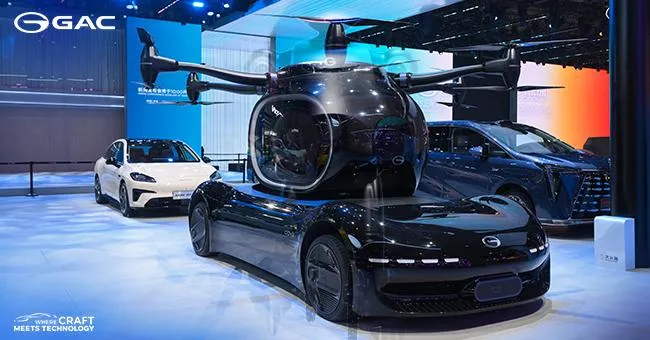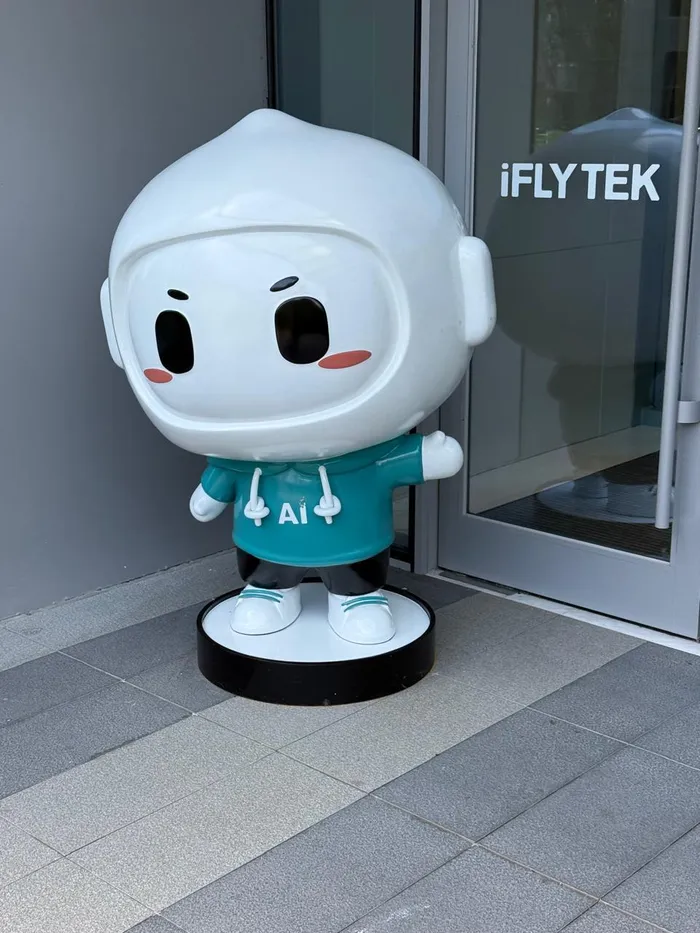The illusion of permanent jobs promised by your school career specialist is just that, an illusion

This year (2025), GAC will lead the establishment of the world’s first humanoid robot application demonstration zone in Guangzhou.
Image: Supplied
News item, Checkers has launched South Africa’s first ‘smart’ shopping trolley that will do away with the cashier.To those alarmed at the prospect this will put thousands of cashier operators and packers out of work, have no fear people, your job was never real, nor certain to begin with. As both Heraclitus, and Buddha have put it, absolutely nothing in life is permanent. the illusion of permanent jobs promised by your school career specialist is just that: an illusion.
We no longer have lift operators and ice haulers carting ice to our iceboxes. I grew up in a world where to go to the third floor at Stuttafords, a luxury department store with my grandmother Ethel, you told the operator which floor you wanted -- after moving the start lever, and then placing it in the correct position, the uniformed operator would announce your destination in a squeaky, high voice “Women’s lingerie, perfume, men’s haberdashery”. Yes, none of the jobs we take for granted today will exist in less than a decade or more.
The milkman who delivered milk bottles with a humming electric truck on my street has long since gone, so too the bioscope usherettes, ticket concierges, popcorn sellers, in fact most of modern media, the typesetter, the humble journalist, columnist and fact checker, other professions like radiography, court clerks and divorce attorneys will be next. We best focus on providing alternatives than holding back progress.
Fear of the Incandescent Unknown
“I’ve never needed us to work together like we need to now. I need us to just treat these trolleys as if they don’t exist. You get to the store and you pick your normal trolley. We have the highest unemployment rate. We can’t afford to go “humanless”” sobbed Zoleika online.
Checkers of course has launched South Africa’s first ‘smart’ shopping trolley, aiming to make grocery shopping faster and easier. The Checkers “Xpress Trolley” allows shoppers to ‘scan and bag items as they go, track a live running total, and pay directly on the trolley, with no need to queue or pack at a traditional checkout’.
But more shocks like this one are just around the corner, or not? A robot that does our laundry and dishes? We’ve had those for ages, they’re called dishwashers and washing machines, but one that checks the right cycle, administers the correct soap dosage, then collects and folds your linen, or puts back your best crockery?
Noritake plate after Noritake plate, or dry-cleans the Pierre Cardon suit and Dior dress before putting the kids to sleep? Intelligent vacuum cleaners were all the rage only just a few years ago, now the next best thing is a humanoid robot produced by Figure, Tesla or Unitree.
Don't look away, because this astonishing revolution is growing at a surreal pace. In the just-concluded men's 100m "Flying Man" final at the world's first Humanoid Robot Games, "Jushen Tiangong Ultra" from the 'Beijing Tiangong Team' sprinted to the finish line in 21.50 seconds, winning the championship. An equivalent milestone to the Wright Brothers third plane flight? Yes, a humanoid robot has taken the first 100m sprint champion in the history of the Games.
The trillion-dollar-a-year 4IR is upon us — Wall St’s ‘chatbots-on-the-desktop’ have given way to superhuman agents in the form of copper wire, silicon and steel — physical AI, the literal amalgamation of several new technologies each one more astonishing on its own.
We have only to look to our near and distant past to see how the introduction of mass produced road vehicles by Henry Ford during the 20th century put an end to the cart horse business and has a contemporary story in the machinations of today’s millennium barons of industry.

iFlytek is renowned for its advanced speech recognition, machine translation, and voice interaction technologies making machines not only listen, but understand and respond naturally.
Image: Supplied
The Elon Musks of the West are morphing into a dime-a-dozen ‘Chairmen in China’ where autonomous vehicles are rolling out as we speak. Baidu and Xpeng look set to overtake and replace the Uber ride hailing revolution as electric transport becomes not merely ubiquitous but autonomous.
Best that South Africa’s complaining corporate classes and their equally miserable worker cohorts not stall progress? Collectively we can act together to facilitate a just transition before it is too late. The alternative is too horrendous to contemplate. Anton Korinek, professor of economics at the University of Virginia and a leading AI economist, believes “our entire economic system will collapse without radical changes” that will necessitate the creation of either a Universal Basic Income or some other method of distributing wealth.
If we are diligent instead of care-free, tomorrow’s children will not merely be able to click-to-collect, or call-a-drone, to deliver what trolley item their new robotic servants cannot, they will deploy entirely different digital asset classes backed by rapidly changing economic technologies, a wallet that is forever evolving? A free economy that is eternally delivering the essentials for life?
If all of this faith in human progress seems like blue-sky nonsense or huckster to-the-moon optimism redolent of 90s digital determinism, or Y2K effective altruism, you could be right -- call me a technological Pollyanna – for all its faults, the world still wants to deliver a brilliant future, and yes, this is one of the best periods of history to be alive.
(David Robert Lewis is the holder of two landmark communications records, World's First Hacktivist Event, San Francisco 1994. First Public ISDN video-conference linking North America with Africa 1995)